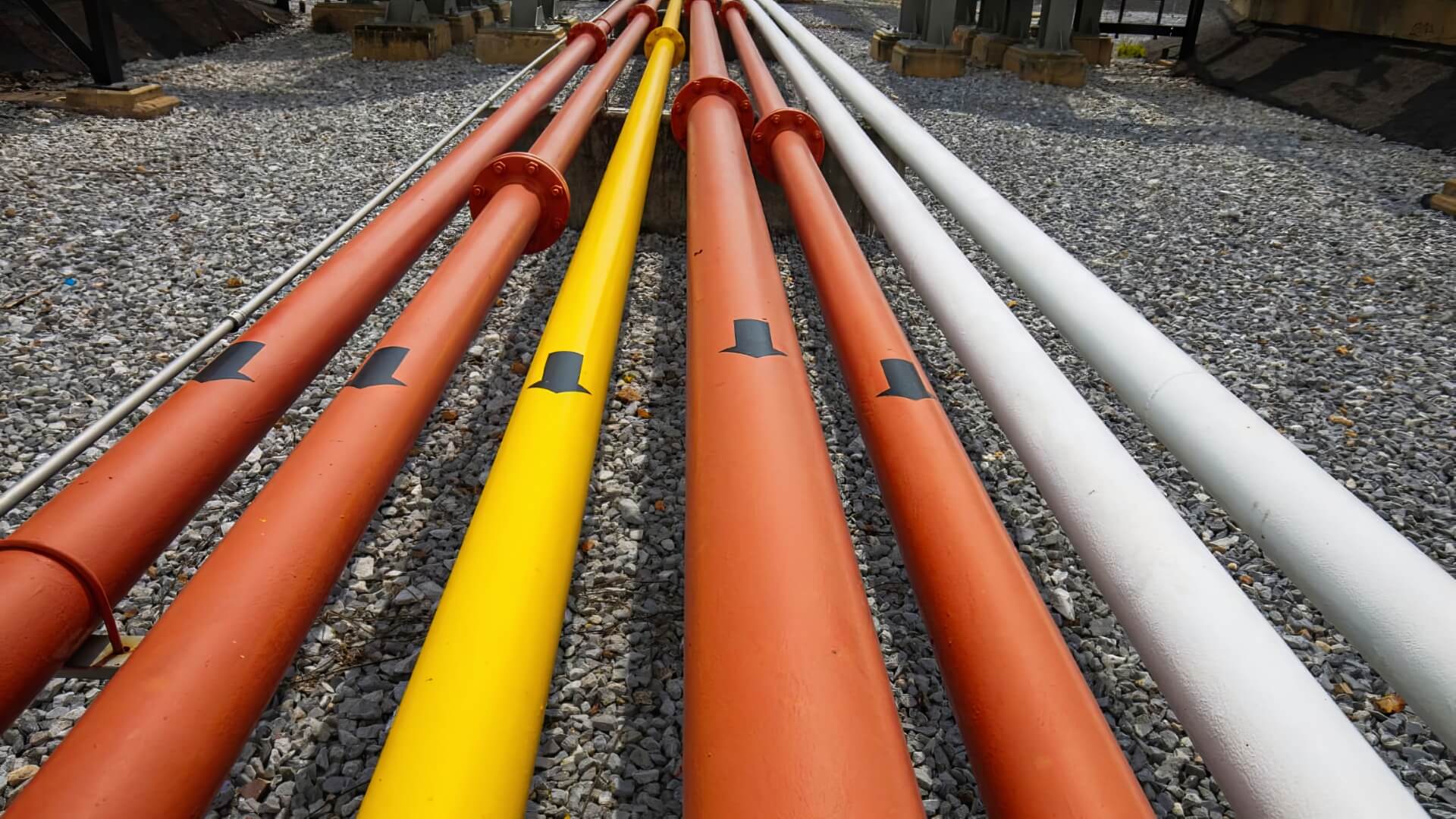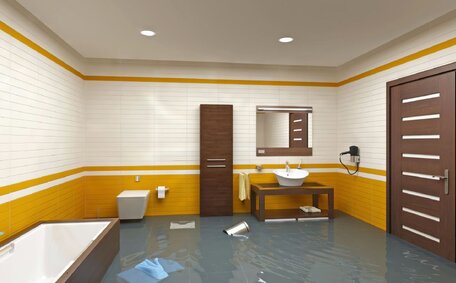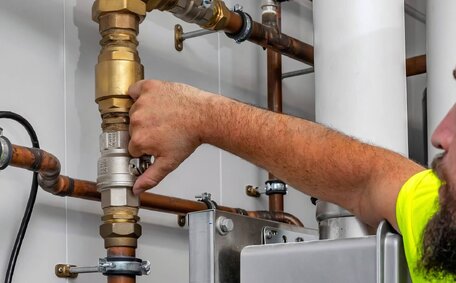Identifying Old and Faulty Gas Appliances Needing Replacement
Homeowners should regularly inspect their gas appliances to determine if replacement is necessary. Look for indicators such as wear and tear, rust, damage or simply old age to determine if an old appliance should be replaced. Gas appliances typically last between 8 to 15 years.
Faulty gas heaters and leaking AC units pose health risks and potential environmental damage. Inefficient operation also leads to increased energy bills. Old air conditioners may use ozone-depleting refrigerants such as R22 or CFCs that require phasing out.
Perform thorough checks, including on soft plastics and other components, to ensure your gas appliances are in good condition:
- Rust around burners or on the body indicates corrosion
- Soot buildup around burners impacting ignition
- Flames not burning cleanly or consistently
- Abnormal sounds during operation
- Failure to ignite or turn on
- Frequent drop-outs or intermittent operation
- Damage to external housing
- An aged or faulty pilot light
- Strange smells when operating
Defective gas appliances like your gas stove, dryers air circulation systems, and ovens must be reviewed by a licenced gasfitter. They can recommend whether repair or a fresh replacement is better. Obtain their help to get rid your home of gas appliances and certify the gas is properly deactivated.
In the process of certifying your gas cooker and old gas cylinders adhere to gas safety norms, it’s vital to inspect the flexible gas connectors for deterioration, ensuring there are no leaks. Ensure adequate ventilation around all your gas-fired units. Consider replacing your seasoned appliance with a new one that’s energy-efficient to help reduce your utility bills.
Safety Precautions When Handling Old Gas Appliances
When you’re ready to dispose old gas appliances, it is crucial to take safety precautions to steer clear of potential hazards.
Before you dispose of your empty gas bottles or butane canister, ensure you turn off gas supply and it’s disconnected by a licenced professional. Ensure you wear protective gear like gloves and safety goggles for safe use when handling any old appliances after you turn off gas supply. Check for gas leaks using a leak detection spray after disconnecting the gas.
Provide ample ventilation when working with heaters to mitigate the escape of butane gas or emissions, particularly before disposing of gas bottles. Open windows, doors or use fans. Avoid inhaling any gases released.
Enlist help for moving cumbersome, hefty, or small appliances like LPG cylinders to maintain safety. Improper handling can damage gas lines and connections leading to leaks.
Take care with sharp edges or rusted exteriors of small appliances which can injure, especially when dropping off for gas cylinder disposal. Make sure appliances are placed in your car securely when transporting them to a disposal facility to prevent accidents en route.
Remove appliances from your home quickly after disconnection to avoid gas accumulation, and consider repurposing serviceable parts. Turn off all switches and knobs before removal.
Consult with environmental agencies and your nearest test station for advice on safe disposal of gas cylinders containing hazardous materials such as refrigerants. Units from bygone eras, encompassing all types of waste, may harbour ozone-depleting CFCs which are now banned.
With proper caution, you can eliminate the risks associated with old gas appliances, but if unsure, contact us for safe disposal preparation. However, if uncertain, always call in professional assistance.
Finding a Licensed Professional to Remove Old Appliances
Removing old appliances like washing machines and gas heaters safely requires hiring a qualified professional to ensure it’s done right. The best way get rid of outdated units is to locate a licenced and experienced gas fitter in your local vicinity.
When aiming to get rid of old gas appliances, verify that the professional is fully accredited and licenced to see they turn off your gas appliances and to work with them in your region. They should carry appropriate insurance and industry qualifications so you can be assured and see they safely decommission and get rid of your appliances.
Check out local recycling directories, peruse reviews, or consult family and friends for reputable gas fitter recommendations, especially concerning your old white goods. Essentials to check include their qualifications, how much experience they have, and how responsive they are to your gas safety concerns.
Moorebank Plumbing offers licenced and insured gas fitters for safe removal and disposal of your old gas appliances in Moorebank and across Sydney. With over a decade of experience, we specialise in decommissioning outdated or faulty appliances.
Contact us at 1300 349 338 or [email protected] for prompt appliance recycling service. Happy to inspect your units, provide a quote, disconnect gas lines safely, and organise their proper recycling or disposal.
Rely on Moorebank Plumbing’s qualified gas fitters to remove and recycle your outdated appliances in compliance with regulations and environmental standards. We make appliance removal easy and compliant.
Options for Eco-Friendly Recycling of Gas Appliances
Several environmentally responsible options are available for recycling old gas appliances rather than resorting to landfill:
- If your camp stove or hot water system still works, offering these belongings to charities or community groups is commendable, as long as they pose no safety concerns.
- Visit a recycling centre to recycle and repurpose metals like steel from your items.
- Participate in appliance take-back programs by local councils or retailers to ensure proper collection and recycling.
- Enlist a licenced technician to remove refrigerant gases safely during cylinder recycling.
- Search for facilities where parts can be salvaged from gas appliances and significant white goods through dismantling and recycling.
- Some facilities even offer cash for certain recyclable materials, making it worthwhile to drop off appliances at a cylinder disposal facility or transfer station for responsible handling.
Recycling small items, such as bread tags, contributes to resource recovery, conserving natural resources and reducing environmental contamination. When you keep items destined for disposal out of your general landfill bin, recovered materials from appliances can be used to manufacture new products.
For additional details, contact our crew at Moorebank Plumbing on 1300 349 338 for insight into waste recycling, such as how to remove your aged gas appliances eco-consciously.
Manufacturer Take-Back Programs
Manufacturers such as Rheem and Bosch may provide product take-back and recycling programs. This allows consumers to conveniently dispose of old appliances in an eco-friendly manner.
These programs arrange for the collection and transportation of outdated appliances from your home. The units are taken to a recycling facility where you can get components safely dismantled, and materials like metals and plastics are separated for repurposing.
The advantages of employing a manufacturer take-back programme, where one can dispose meticulously, consist of:
- Convenient scheduled pickup of old appliances for recycling
- Proper handling of any hazardous materials like refrigerants
- Responsible recycling and disposal instead of landfilling
- Recovering valuable component materials for manufacturing new products
- Assistance with decommissioning and removing outdated appliances
Check with the manufacturer to dispose your gas appliance or search their website to see if they offer a product recycling programme. This can ensure your old appliances are recycled safely and sustainably.
Donating Still-Functional Appliances
Rather than parting with your old one, consider donating operational gas appliances to charity. Many organisations, like the Salvation Army, St Vincent de Paul and community groups, accept donations of functioning stoves, hot water systems and your white goods to support those in need.
Ensure that your appliance is in good working order and certified by a licenced gasfitter as leak-free before donating. Provide operating manuals and instructions, so the recipient is aware of the condition can assess and use the item safely. Ensure all components are intact, and that the unit is clean prior to pick up.
Donating appliances reduces waste, extends the lifespan through continued use, and benefits those who receive upgraded models they otherwise couldn’t afford. Always confirm which items can be accepted by your chosen charity before arranging drop off or collection.
If you can no longer use your gas appliance, consider giving it a new life by donating to a worthwhile cause. However, safety comes first - any unit must be compliant and functional prior to passing on.
Local Council Disposal Services
Local councils provide various methods for disposing of old gas appliances and bulky household items responsibly. Engage with your local council to inquire about household disposal options available in your household’s area.
Many councils can take your old gas appliances at hazardous waste collection events occasionally throughout the year, to ensure they are safely processed. Some also offer a pre-booked pickup service for collecting larger items like hot water systems or stoves, transporting them to a recovery centre.
Determine if your local op shop or waste transfer station accepts household gas appliances, as some have dedicated areas to facilitate responsible disposal. Products encompassing refrigerants such as fridges might be subject to constraints when being dropped off.
For recycling gas cylinders, contact councils about approved resource recovery centres that decommission and process items like old gas bottles so they’re not discarded as rubbish. Your empty gas canisters and disposable cylinders can often go in your regular recycling collection.
Check whether your council offers a hard waste collection service for getting bulkier appliances like your gas stove picked up from your kerbside. Ensure any gas is disconnected by a professional beforehand.
Your council can advise on charges, safety procedures and schedules for their disposal services. By using council programmes, you ensure responsible recycling and minimal environmental impact from your old gas appliances.
The Importance of Proper Degassing Before Disposal
Ensure that refrigerators, air conditioners, and similar gas appliances are professionally degassed before disposal. This critical step ensures harmful greenhouse gases and ozone-depleting refrigerants are safely removed and captured.
Many older gas appliances contain refrigerants like R22, R134a, and CFCs which have high global warming potential if released into the atmosphere. Escaped refrigerants also contribute to ozone layer depletion.
Only a licenced technician with specialised equipment should carry out degassing to safely extract and contain refrigerant gases. DIY degassing could result in leaks and unlawful release of hazardous chemicals.
During professional degassing, it’s crucial to put them in a secure spot where any refrigerant from your gas appliances is recuperated into storage vessels that can be recycled or properly discarded, in line with environmental regulations. The appliance can then be safely recycled or scrapped without risking refrigerant escape over time.
It’s a legal requirement to prevent refrigerants from leaking into atmosphere; therefore, dispose your air conditioning units properly, including degassing of regulated refrigerants. Failure to degas old units can result in significant fines under Australian regulations.
Contact our team at Moorebank Plumbing on 1300 349 338 to arrange safe degassing and disposal of your old gas appliances in the Sydney region. We ensure full refrigerant recovery and environmental compliance.
Only a licenced ted Recycling Centers for Hazardous Materials
When disposing of old gas appliances, it is crucial to utilise authorised recycling centres that can properly process and recycle hazardous components. These specialefrigerant from appliances like fridges and air conditioners to prevent ozone depletion. Materials like CFCs, HCFCs or HFCs can then be captured and recycled. They also remove other hazardous items like old thermostats containing mercury.
Look for recycling centres displaying certification from EPA-approved programmes. This indicates they meet standards for the safe handling of hazardous wastes from consumer products and gas appliances. Centres should demonstrate use of EPA protocols for capturing, recycling and disposing of hazardous contents.
Prior to dispatching gas appliances, ring up your local depot to confirm the types of devices they can recycle and any constraints imposed. For example, some may not accept appliances over a certain size or items that can not be easily degassed beforehand.
Specialised recycling centres ensure safe environmental practices; contact your local facility for more information rather than simply placing appliances in the recycling bin. They ensure responsible disposal aligned to regulations.
At Moorebank Plumbing, we partner with authorised recycling centres across Sydney to sustainably process all hazardous materials from your old gas appliances. Contact us today on 1300 349 338 for more assistance with environmentally responsible disposal.
When disposing of old gas appliances, it is crucial to utilise authorised recycling centres that can properly process and recycle hazardous components. These specialty facilities have the equipment, expertise and EPA licencing to safely handle hazardous materials like refrigerants, mercury switches and insulation.
Authorised recycling centres will safely remove the refrigerant from appliances like fridges and air conditioners to prevent ozone depletion.
Consulting with Professionals foconnections, leading to hazardous leaks. Similarly, transporting units insecurely could result in accidents or injuries.
Professional gas fitters have the expertise to safely turn off gas supply to your appliances and seal openings to prevent leaks during transport.
They’ll ensure the gas is securely turnedervices. Find out about their processes for sealing appliances and securing them within trucks or trailers to avoid damage enroute.
Ensure they are fully licenced and insured. This helps minimise risks during transportation.
At Moorebank Plumbing, our licenced professionals take all necessary safety precautions when removing and transporting your old gas appliances for recycling or disposal. Trust our experienced team to handle the process smoothly from disconnection through to environmentally responsible disposal.






